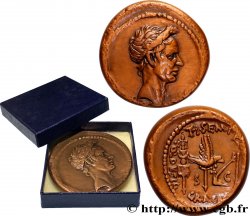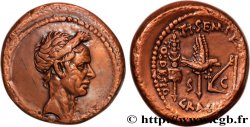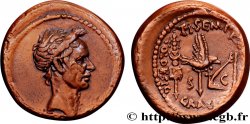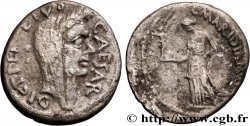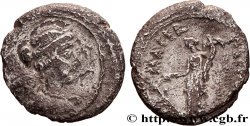v55_0096 - JULIUS CAESAR Denier, imitation
MONNAIES 55 (2012)
Starting price : 350.00 €
Estimate : 1 500.00 €
Realised price : 350.00 €
Number of bids : 1
Maximum bid : 500.00 €
Starting price : 350.00 €
Estimate : 1 500.00 €
Realised price : 350.00 €
Number of bids : 1
Maximum bid : 500.00 €
Type : Denier, imitation
Date: 42 AC.
Mint name / Town : Irregular mint
Metal : silver
Millesimal fineness : 950 ‰
Diameter : 19 mm
Orientation dies : 3 h.
Weight : 2,98 g.
Rarity : UNIQUE
Coments on the condition:
Exemplaire sur un flan épais et voilé, où le portrait a été largement entaillé. Le métal vil apparaît à divers endroits de la monnaie, notamment au revers. Patine grise avec des traces terreuses dans les creux
Obverse
Obverse legend : ANÉPIGRAPHE.
Obverse description : Tête laurée de Jules César à droite (O*).
Reverse
Reverse legend : LENTVLVS/ SPINT À L’EXERGUE EN DEUX LIGNES.
Reverse description : Capis et lituus.
Reverse translation : “Lentulus Spinther”, (Lentulus Spinther).
Commentary
Poids léger. Monnaie fourrée. Association inédite et extraordinaire d’un droit au portrait de Jules César et d’un revers de son ennemi, Cassius ! La monnaie est forcément une imitation, il est impensable et impossible que ce droit aille avec ce revers ! Cependant, la qualité des coins utilisés est digne d’un travail d’un atelier officiel. Les entailles sur le portrait peuvent laisser imaginer que c’est un allié de Cassius qui a eu pour la dernière fois la monnaie entre les mains !.







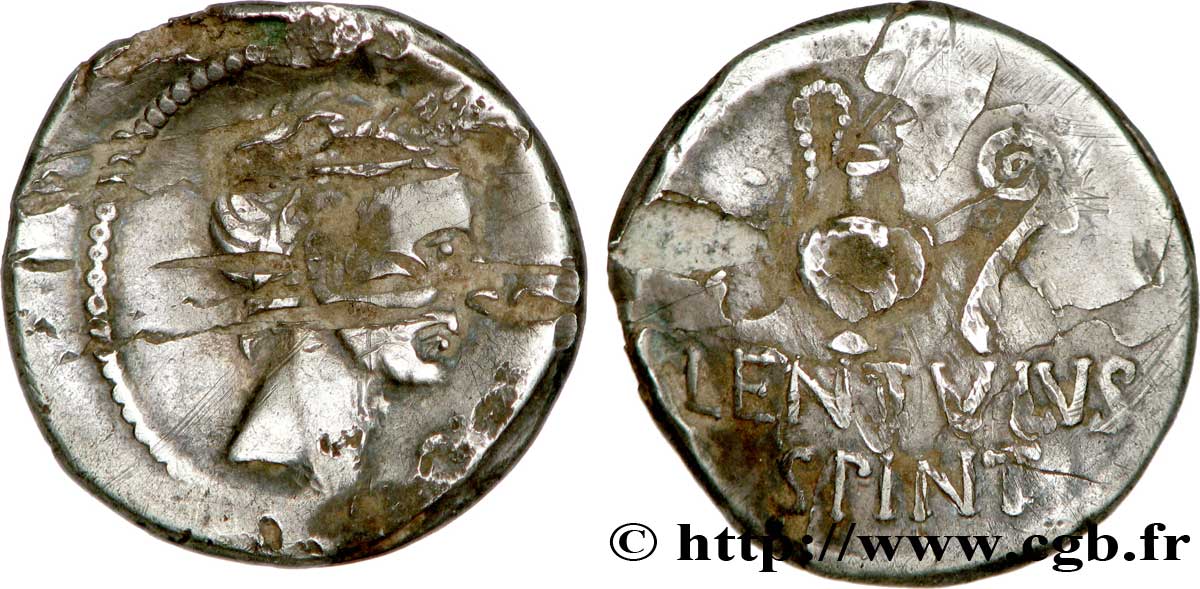
 Report a mistake
Report a mistake Print the page
Print the page Share my selection
Share my selection Ask a question
Ask a question Consign / sell
Consign / sell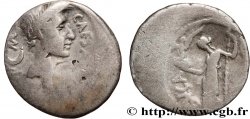
 Full data
Full data